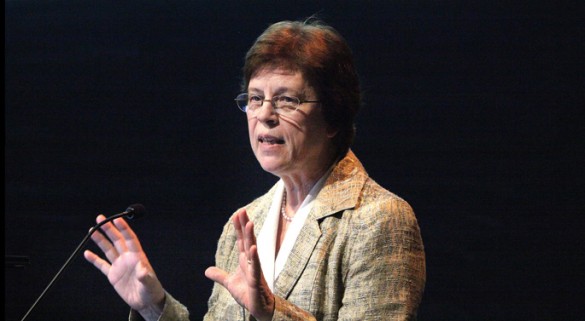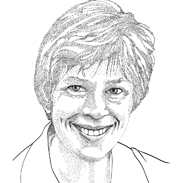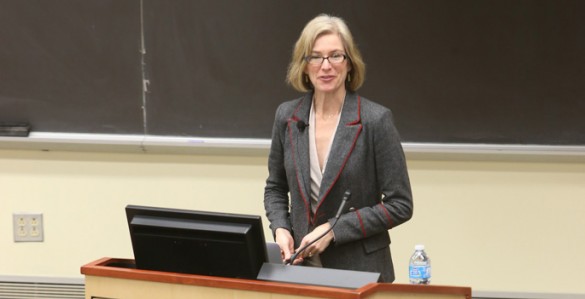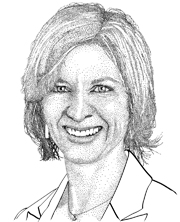
We’re on a potential collision course, said last week’s Flexner Discovery Lecturer, between the delivery of good medical care and the possibilities offered by genome medicine.
Wylie Burke, M.D., Ph.D., professor and chair of the Department of Bioethics and Humanities at the University of Washington, urged audience members to draw on “practical wisdom” to confront the challenges of genome medicine.
Burke defined genome medicine as “the concept just beginning to be realized of using whole genome or whole exome (protein-coding genes) analysis in the process of clinical care.”
Because of technological advances, it is becoming practical to sequence the entire genome for about the same cost as analyzing just a few genes, she said.
“That calls into question: where should we use whole genomes; how should be use whole genomes?”
Burke described some of the early uses of whole genome/exome data to improve health care, and she cautioned about the “baggage that comes with it … information the clinician wasn’t looking for and didn’t need to address the problem at hand.”
This information could include inherited mutations for diseases that may or may not be treatable, as well as changes for which there is no information – some of which may be meaningless “false positives.”
“There’s a challenge here,” Burke said. “We can see genomics offering benefits in health care, but how do we handle all this extra stuff?”
Her advice to clinicians: use practical wisdom and be careful about how much information you gather.
“The more information we get, the more we create the potential for iatrogenic harm (caused by medical examination or treatment), which is really avoidable,” she said.
Burke’s presentation was the Patricia Townsend Meador Lecture in Ethics and Health Care, sponsored by the Center for Biomedical Ethics and Society.
For a complete schedule of the Flexner Discovery Lecture series and archived video of previous lectures, go to www.mc.vanderbilt.edu/discoveryseries.















